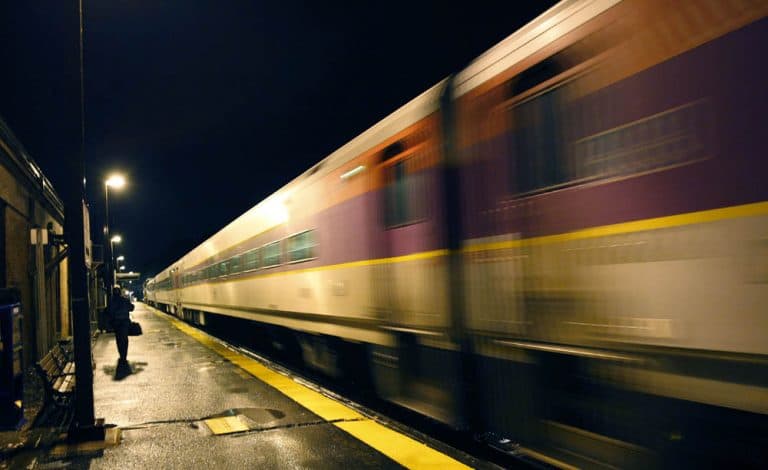Advertisement
To Fund Transportation, Leaders' Plan Would Raise Gas, Cigarette Taxes
After months of behind-the-scenes work, legislative leaders on Tuesday unveiled their response to Gov. Deval Patrick’s plan to boost state spending on transportation and education by nearly $2 billion. But the Legislature is headed down a less ambitious path.
Just before Beacon Hill leaders announced their plan, dozens of transportation advocates rallied for the governor’s plan outside the State House. They were led by Somerville Mayor Joseph Curtatone.

"Fix it now. What're we gonna tell them? Fix it now,” Curtatone said, leading the crowd in a chant.
But a few minutes later, Curtatone and crew were disappointed by what they heard at a press conference inside. Legislative leaders proposed only half the new transportation spending the governor called for and no new revenues for his education plans.
"We cannot and don’t believe that we can further squeeze the middle class,” said Senate President Therese Murray, joining House Speaker Robert DeLeo and key committee leaders to detail their response to the governor’s plan.
"And while we need to invest now, like we do every year, we need to do it in a way that does not bankrupt the current generation," she said.
The implication: Gov. Patrick’s proposal to raise $1.9 billion in new revenues, including a 1 percent hike in the income tax, went too far. Instead, the leaders’ plan would raise the gas tax 3 cents per gallon. That’s relatively modest when compared to the 21-cent tax the state already levies on gas.
They would hike cigarette taxes by $1 dollar per pack — fairly hefty, but popular with the public in general and health advocates in particular. They would also raise some $250 million in new taxes on businesses.
Advertisement
Speaker DeLeo said the goal was to raise $500 million in new revenue while spreading the burden.
"Most people recognize that we need a transportation system that works,” DeLeo said. "Yet we also recognize that Massachusetts is still struggling to emerge from the financial downturn."
The leaders touted the reforms their plan would enact: within three years, the state transportation department would be able to stop borrowing money to pay for salaries and operational expense. That would free up new bond money for infrastructure investments. The MBTA’s budget deficit would be cleared up within five years, and according to Murray, a fare hike could be averted this year.
Regional transit authorities outside of Boston that have to borrow money while they wait for state allotments would start getting paid up front. And state support for local road projects — so-called Chapter 90 funding — would increase by 50 percent to $300 million.
Transportation advocates who’d been enthralled by the governor’s vision were deflated. Kristina Egan, who directs a coalition called Transportation for Massachusetts, called the plan inadequate.
"We could look at about $800 million to a billion dollars being the need, but it’s certainly not $500 million," Egan said.
Administration officials were careful in their reactions, saying they needed to review the proposal before making a full response. But Education Secretary Matthew Malone did say he was concerned about the leaders’ apparent intent to forego any new revenues for education — a big contrast with the governor’s proposal to add $900 million to the education pool.
"I’m concerned that education is not at the forefront as equal with transportation," Malone said.
At the same time, he added that he believes lawmakers are still open to the governor’s arguments about the urgent need for education investment. He should find out just how open they are next week, when the leaders will release their full state spending plan for fiscal 2014.
This post was updated with Morning Edition feature content.
This article was originally published on April 02, 2013.